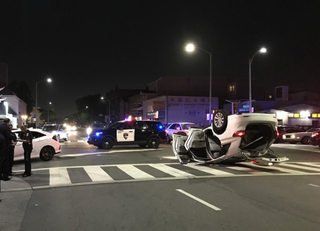Bias
Tools to Keep Our Biases and Conspiracy Beliefs in Check
How to manage uncertainty.
Posted April 22, 2021 Reviewed by Devon Frye
Key points
- Discomfort with uncertainty during times of crisis or after being mistreated can increase biases and conspiracy beliefs.
- New research results suggest new ways to help at least some people become more comfortable with uncertainty and thus less biased.
- Pausing to ask questions about negative behaviors can also reduce biases for some people.
One of my goals in writing this blog has been to share research-based ways to reduce bias and interpersonal conflict. During the same time, my students and I have been investigating new ways to achieve such outcomes. I present here some of our new findings.
One of our studies investigated bias in the form of conspiracy beliefs including those about the deliberate spread of viruses and deception from scientists. Given some of the conspiracy beliefs about COVID-19 and vaccines, I thought maybe now would be a good time to share some of our results. The results are preliminary and limited in their scope, but we have presented them at academic conferences (or in one case will do so in late April).

Uncertainty and Conspiracy Beliefs
As background to some of this research, many biases and conspiracy theories are fueled by fear or at least uncertainty. Research shows that when experimenters reduce participants’ feelings of control or certainty, the participants are more likely to see connections that aren’t there and to endorse conspiracy beliefs and superstitions (Whitson & Galinsky, 2008). It turns out that not knowing why a scary problem is happening, or what all its consequences may be, is a psychologically difficult state for most of us. So some of us may deny the problem (e.g., call it a “hoax”), or we may rationalize an (untenable) explanation behind the problem or behind our avoidance of it.
The rationalized explanation may be statistically unlikely or even outlandish, as in some conspiracy theories such as regarding COVID-19 (Klepper, 2021), but it can provide a strange sense of comfort or control, relative to a scarier state of uncertainty. It can especially provide comfort if many others agree with it from our peer, family, political, or social-media groups (Gorvett, 2020).
For example, if we know “who the enemy is,” such as a political party or another country, at least we won’t sit around idle and purposeless—we can focus our efforts on criticizing or defeating that perceived enemy. We can donate money to the politician who promises to defeat the enemy. Unfortunately, in the case where China is described as the enemy during the COVID-19 pandemic, hostility against Asian Americans and Pacific Islanders can result.
Ego Protection and Politics
Of course, some denials and rationalizations are about ego protection and not about wrestling with uncertainty or a lack of control. Conspiracy theories can sometimes occur not because the truth is unknown but rather because the truth contradicts our other strongly held views or past behaviors. Some denials and rationalizations may also be a simple political strategy that can take advantage of voters’ loyalties, uncertainties, or fears.
The bias-reducing tools to be discussed in this post may not have an impact on ego protectors and politicians, but the tools may still help some of the followers of high-profile politicians who spread conspiracy theories.
In fairness, I want to mention that a small fraction of high-profile conspiracy theories in the history of the United States later turned out to have some truth, though there’s a difference between that rare event and many current-day conspiracy theories which are easily and overwhelmingly disproved. The likelihood that some conspiracy beliefs can lead to domestic terrorism (Chan, 2019) is further reason to find new ways to reduce conspiracy beliefs even if there is a tiny kernel of truth to any of them.
Uncertainty in Everyday Interactions
Beyond conspiracy theories about large-scale events, in one-on-one interactions, we often may not know for sure why someone behaved badly toward us. This lack of certainty can be frustrating in the moment in the context of what feels like an injustice, and it can motivate us to jump to conclusions. If someone speeds and cuts us off on the highway, we might think “What a jerk!” and even try to retaliate (Stalder, 2018). If someone comes late to an important business meeting that we are leading, we might treat that behavior as rude or even insulting.
In actuality, these negative behaviors can also be due to an emergency or other behind-the-scene circumstances (not that these individuals deserve a free pass). But we may never know what those circumstances are, particularly in sudden near misses on the road.

Even in full-blown car accidents, we might have to deal with uncertainty and not knowing. On a lightly snowy road many years ago, as I stopped for a red light, I was rear-ended and taken to the hospital as a precaution. Before the ambulance arrived, I made my way to the driver behind me and asked if she was OK. She stayed in her car and did not reply; she received a ticket, but I never found out exactly why she slammed into me. Was it incompetence, inexperience on the snow, or was there more going on in her life?
Comfort with Uncertainty: The Uncertainty Mindset
Two studies my students and I recently conducted have tried to create what we called an “uncertainty mindset,” in which it feels okay and even helpful to be uncertain. After all, the only certainty in life is uncertainty. Doubt is not a pleasant condition, but certainty is absurd. These statements are some of the sayings or famous quotes that we asked a portion of our participants to read and reflect on (Stalder, 2019). This reflection constituted part of the “uncertainty mindset.” The idea was that if discomfort with uncertainty leads to bias, then making people more comfortable with uncertainty should prevent or reduce bias.
In that first study, the uncertainty mindset reduced anger (though not bias) in response to a reckless driver, but only among participants who were predisposed to have a high need for certainty.
In another study (Hammes & Stalder, 2021), we strengthened the uncertainty-mindset manipulation to try to reduce interpersonal bias and conspiracy beliefs. Like a common “growth mindset” manipulation (Yeager et al., 2013), we provided not only quotes but also scientific results and philosophical perspectives, specifically about the normality of uncertainty in everyday life and the benefits of trying to accept it. For example, we shared research that showed discomfort with uncertainty can contribute to prejudice and alcohol abuse (Kraemer et al., 2015). We discussed how embracing uncertainty can improve creativity and problem solving (Holmes, 2015).
In this study, the uncertainty mindset reduced some biases and conspiracy beliefs (including those beliefs regarding viruses), but only among participants who had a high need for certainty or who scored low on mindfulness (which are two groups of people who typically have greater discomfort with uncertainty).
Asking Questions
My students and I also investigated whether asking the right questions after being mistreated might reduce bias (Stalder et al., 2021). After that other driver almost killed you on the highway, before shouting “what a jerk,” what if a question were directed to the driver, such as “what’s making you do this?” or even “what’s wrong with you?” Participants who had to pause in their thinking to contemplate these unknowable possibilities showed less bias than the control group, but only when the participants were predisposed to be empathetic. Empathetic individuals are prone to consider the perspective of other people, but these questions about the perpetrator apparently helped these empathetic individuals along that path.
In Sum
So far, my research has had limited success. I’ve seen some of the expected results but only among particular subsets of individuals. It’s hard to reduce these types of emotion-driven biases and hard to increase comfort with uncertainty. But if you’re one of these individuals (with empathy, with a high need for certainty, or with a low level of mindfulness) and if you want to reduce the risk of bias, then you can try the following. If you know of such individuals, you can try to encourage them to try the following.
- Ask questions out loud about what’s happening in the life of the individual who mistreated you. It’s just a question—you don’t have to answer it and it’s not about excusing a perpetrator.
- Reflect on the costs of being overly certain, or reflect on the statements from famous individuals about how it’s normal and sensible to be uncertain (Stalder, 2015).
Science knows that humans desire certainty and can do biased and sometimes dangerous things during states of panicked uncertainty. I am hopeful (though not certain) that my work on an uncertainty mindset will grow. My students and I have considered how it relates to mindfulness-based psychotherapy. In the least, we have preliminary evidence for bias-reducing interventions targeted at those who may be most discomforted by uncertainty or who may be most receptive to an empathetic push.
[Note: Several other Psychology Today authors have provided a variety of advice on how to become more comfortable with uncertainty (you can google “Psychology Today uncertainty” to find these articles). Although the present article was more about sharing new research results, I acknowledge it is one of many for your consideration on this general topic.]
References
Melissa Chan, “Conspiracy Theories Might Sound Crazy, But Here’s Why Experts Say We Can No Longer Ignore Them,” Time, August 15, 2019, https://time.com/5541411/conspiracy-theories-domestic-terrorism/.
Zaria Gorvett, “What We Can Learn from Conspiracy Theories,” BBC, May 24, 2020, https://www.bbc.com/future/article/20200522-what-we-can-learn-from-cons….
Josie R. Hammes and Daniel R. Stalder, “Can Comfort with Uncertainty Reduce Bias and Conspiracy Beliefs? Creating an Uncertainty Mindset” (virtual presentation, Annual UW System Symposium, April 28, 2021).
Jamie Holmes, Nonsense: The Power of Not Knowing (New York: Crown, 2015).
David Klepper, “Viral Thoughts: Why COVID-19 Conspiracy Theories Persist,” Associated Press, April 6, 2021, https://apnews.com/article/why-covid-19-conspiracy-theories-persist-258….
Kristen M. Kraemer et al., “The Role of Intolerance of Uncertainty in Terms of Alcohol Use Motives among College Students,” Addictive Behaviors 42 (2015): 162–66.
Daniel R. Stalder, “How to Reduce Biases: Accept Uncertainty,” PARBs Anonymous (blog), March 23, 2015, https://parbsanonymous.wordpress.com/2015/03/23/how-to-reduce-biases-ac….
Daniel R. Stalder, The Power of Context: How to Manage Our Bias and Improve Our Understanding of Others (Amherst, NY: Prometheus Books, 2018).
Daniel R. Stalder et al., “‘What’s Your Problem?’ The Role of Language and Empathy in Committing the Fundamental Attribution Error” (virtual presentation, Annual Meeting of the Society for Personality and Social Psychology, February 11, 2021).
Daniel R. Stalder, “Can Cultivating an Uncertainty Mindset Reduce Bias? A Preliminary Study” (presentation, Annual Meeting of the Midwestern Psychological Association, Chicago, IL, April 12, 2019).
Jennifer A. Whitson and Adam D. Galinsky, “Lacking Control Increases Illusory Pattern Perception,” Science 322 (2008): 115–17.
David S. Yeager et al., “Implicit Theories of Personality and Attributions of Hostile Intent: A Meta-Analysis, an Experiment, and a Longitudinal Intervention,” Child Development 84 (2013): 1651–67.




